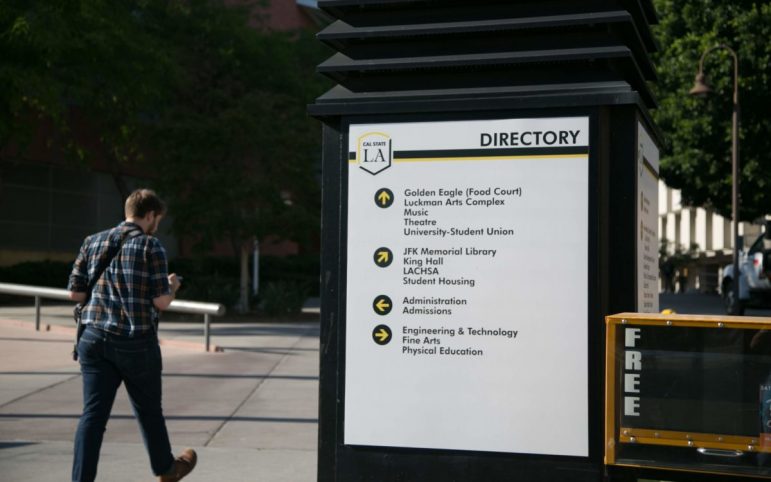Here’s one you probably haven’t heard before: The Legislature is considering a plan to make it easier for California community college students to get into a UC or Cal State campus, but current community college students aren’t backing it.
The dust-up exposes the frustrating and convoluted process California community college students endure trying to transfer into the state’s public universities.
Fixing the transfer maze, as it’s sometimes called, is a holy grail in California higher education — doing so could reduce the students’ cost to get a bachelor’s degree and increase the state’s supply of workers with four-year degrees.
Although most community college students have a goal of transferring, only 22% of those who began their studies in 2015-16 did so within three years.
To critics of Assembly Bill 928, the goals of the proposed law are notable but the execution is wrong. Opponents include Gov. Gavin Newsom’s finance department, community college faculty groups, the chancellor’s office of the community college system and the UC Office of the President.
The bill — which has cleared the Assembly and is now headed to the Senate floor — would:
- Have the UC and Cal State systems agree on a common set of general-education courses that community college students must take to get into either system. Currently, for instance, Cal States requires completed courses in ethnic studies and communications, but UC does not;
- Require that community colleges place all students who plan to transfer — even if they want to attend UC or another college — into the existing guaranteed transfer path to get into a Cal State.
Crucially, the student senate of the community college system is withholding support for the bill unless it drops the requirement of a Cal State track for every student who wants to transfer anywhere. Community college faculty groups and the system’s chancellor’s office want this language gone, too.

Students automatically placed on that Cal State-specific transfer route “may be at a serious disadvantage, which would require them to potentially take additional courses” at the community college if they later decide to transfer instead to a UC or a private college, the student senate wrote in a letter to bill author Assemblymember Marc Berman, a Democrat from Silicon Valley.
Berman, a major legislative thinker on higher-education transfer issues, said his staff is working with the student senate to address their concerns. He also noted that students would have the option to drop out of that placement.
And though current community college students are unsold on the bill, several prominent former California community college student leaders who transferred to a UC or Cal State campus support the bill, citing their success as a reason it should pass. The student associations of the UC and Cal State also back it. They say the transfer bill will simplify the transfer process and ensure more community students take the classes they need to enter a Cal State or UC.
“These are the students that have gone through the transfer process that know how broken it is,” said Berman.
